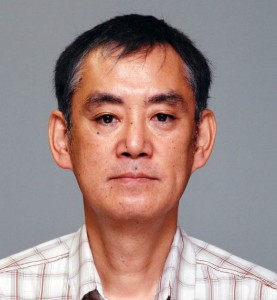 Senior special writer, Masaru Yamada
Senior special writer, Masaru Yamada
Prime Minister Shinzo Abe returned to Japan on Sunday, May 3, after a visit to the United States which included a meeting with U.S. President Barack Obama and a speech at the U.S. Congress. Abe seems satisfied with the fact that he and Obama could reaffirm the importance of the Japan-U.S. alliance. However, Abe’s remarks made in Washington indicate nothing but Japan’s intention to follow the U.S. global strategy like a shadow in every aspect from foreign and military policies to economics.
For two months in the end of last year, the writer interviewed people from farm lobbying groups in Washington concerning the Trans-Pacific Partnership free-trade talks. They unanimously gave high marks to Abe for deciding to join the TPP negotiations aimed at eliminating tariffs despite strong opposition from domestic farmers, and for trying to conduct deregulation as part of the three arrows of Abenomics policies and dismantle agricultural co-operatives-Japan’s farm lobby-in order to shut down opponents of market liberalization.
It is natural for U.S. lobby groups calling for total liberalization of Japan’s farm market to highly evaluate Abe’s reformist policies. One lobbyist even likened Abe to a “super hero” who knocks out protectionists clinging on to the so-called “bedrock regulations” with a powerful drill.
It’s almost like déjà vu. Nearly three decades ago in 1986, under Prime Minister Yasuhiro Nakasone’s administration, the Advisory Group on Economic Restructuring issued the so-called Maekawa Report, calling for domestic demand expansion, market liberalization and financial deregulation.
When the writer visited the U.S. for about a month immediately after the release of the report, many people asked whether the proposals written in the report will be carried out, in hopes that if the Nakasone administration takes decisive action to reform the economy in spite of domestic resistance, the U.S. can increase Japan-bound exports of farm products.
In a few years, their hopes became reality. Overwhelming pressure from the U.S. pushed Japan to liberalize imports of beef and oranges, and eventually imports of rice.
It is reported that Abe and Obama did not touch on specific items such as rice in their latest meeting. Some in Japan may feel relieved that Abe did not make any pledges concerning market liberalization, but we should be aware of the significance of Japanese prime minister visiting the U.S. capital and giving speeches sprinkled with rosy dreams. There is no doubt the “alliance of hope” declared by Abe has given great hope to people aiming at Japan’s agricultural market.
<Profile> Born in Tokyo in 1955, Masaru Yamada received a master’s degree from the Tokyo University of Agriculture and Technology’s United Graduate School of Agricultural Science. Former staff writer of The Japan Agricultural News and visiting scholar at the University of Florida, he is currently a senior special writer at The Japan Agricultural News.
(May 5, 2015)

